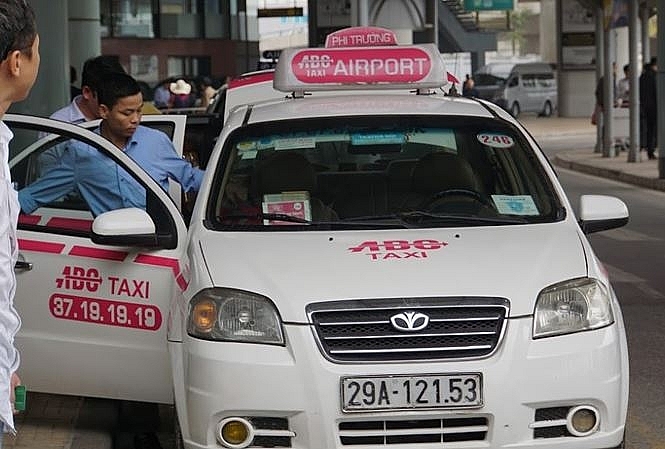Taxi associations request temporary policy to hamper Uber and Grab
 |
| Traditional taxi associations ask to build temporary policy to tighten Uber and Grab |
The taxi associations of Hanoi, Ho Chi Minh City, and Danang have submitted the document to the Prime Minister Nguyen Xuan Phuc to protest the government’s decision to extend the pilot programmes on using technology applications to connect and manage transport activities until the new decree replacing the existing Decree No.86/2014/ND-CP comes into effect.
According to the three taxi associations, if local authorities extend the pilot ride-hailing service programme instead of tightening the operations of Uber and Grab, the Vietnamese transport market will be disturbed and traditional taxi firms will find it difficult to maintain operations.
The taxi associations also showed numerous disadvantages during the implementation of the pilot programme in the past two years.
Notably, the Ministry of Transport neglected controlling the vehicle volume during the pilot programme, despite the Ho Chi Minh City and the Hanoi people’s committees' numerous warnings of oversupply.
| If the local authorities extend the ride-hailing service pilot programme and refuse to tighten controls over the operations of Uber and Grab, the Vietnamese transport market will be disturbed and traditional taxi firms will find it difficult to maintain operations. |
Accordingly, the under-nine seat automobiles taking part in the pilot programme reached over 60,000 nationwide, almost all of which are concentrated in Ho Chi Minh City and Hanoi. Grab and Uber’s fleets broke the cities’ transport planning and has contributed to causing traffic jams.
Despite the staggering size of their fleet, Uber and Grab only paid VND285 billion ($12.5 million) in tax between 2014 and October 2017, equalling the tax that Vinasun, which manages a little more than 5,000 taxis, paid in nine months.
With the 25 per cent commission that Uber and Grab enjoys from customer fares, these units transfer VND5.4 trillion (almosst $238 million) overseas per year, or VND15 billion ($660,000) per day.
The taxi associations also complained that two years is a long duration for implementing a pilot programme. In addition, it takes an additional two to three years for the authorities to build the new decree on business and conditions for transportation business by automobiles. Thus, if authorities do not build a temporary policy to tighten the reins over Uber and Grab, the problems will only grow.
In reality, the operations of traditional taxi firms have been seriously impacted by the appearance of Uber and Grab. Notably, in Ho Chi Minh City, half of the taxi firms stopped operations and the number of taxis decreased by 30 per cent. In Hanoi, the number of traditional taxis decreased by 35 per cent.
Hence, the taxi associations proposed to build a temporary policy with the aim to stop extending the fleets and the geographic scale of the pilot programme. Besides, Uber and Grab will have to sign direct contracts with drivers.
A few days ago, at the meeting on the draft decree on business and conditions for transportation business by automobile, Minister of Transport Nguyen Van The stated that the new decree, which will replace the existing Decree No.86/2014/ND-CP, will have to be carefully built, especially the clauses relating to the management of the operations of Grab and Uber, as well as the two firms’ responsibilities to manage their drivers, according to information published on the government’s website.
He added that Uber and Grab will have to agree to operate under the management model applied to traditional taxi firms, they will be permitted to maintain operations, otherwise, they have to leave Vietnam.
What the stars mean:
★ Poor ★ ★ Promising ★★★ Good ★★★★ Very good ★★★★★ Exceptional
Themes: Ride-hailing services
Related Contents
Latest News
More News
- EU and Vietnam elevate relations to a comprehensive strategic partnership (January 29, 2026 | 15:22)
- Vietnam to lead trade growth in ASEAN (January 29, 2026 | 15:08)
- Japanese business outlook in Vietnam turns more optimistic (January 28, 2026 | 09:54)
- Foreign leaders extend congratulations to Party General Secretary To Lam (January 25, 2026 | 10:01)
- 14th National Party Congress wraps up with success (January 25, 2026 | 09:49)
- Congratulations from VFF Central Committee's int’l partners to 14th National Party Congress (January 25, 2026 | 09:46)
- 14th Party Central Committee unanimously elects To Lam as General Secretary (January 23, 2026 | 16:22)
- Worldwide congratulations underscore confidence in Vietnam’s 14th Party Congress (January 23, 2026 | 09:02)
- Political parties, organisations, int’l friends send congratulations to 14th National Party Congress (January 22, 2026 | 09:33)
- Press release on second working day of 14th National Party Congress (January 22, 2026 | 09:19)

 Tag:
Tag:

























 Mobile Version
Mobile Version